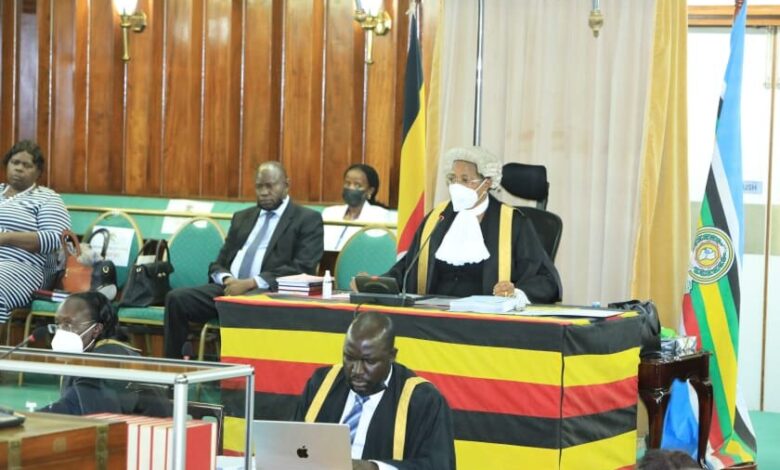Parliament approves govt’s request to borrow $464.13 million from Standard Chartered Bank
State Minister for Finance Henry Musasizi defended the loan, saying it is intended to "help pay outstanding infrastructure certificates among others to avoid accumulating arrears during the financial year".

Opposition Members of Parliament (MPs) have lost the fight to prevent the government of Uganda from borrowing $ 464.13 million from international financiers through Standard Chartered Bank.
Finance State Minister, Henry Musasizi, in a proposal to Parliament, said the money will finance the national budget and is intended to help pay outstanding infrastructure certificates among others to avoid accumulating arrears during the financial year.
Standard Chartered Bank will act as the lead arranger of the loan that will be financed by Nippon Export and Investment Insurance (NEXT), a Japanese trade and investment insurance firm, and the Islamic Corporation for the Insurance of Investment and Export Credits (ICIEC).
National Unity Platform (NUP)’s Muwanga Kivumbi representing Butambala County protested that the government doesn’t need the loan because it doesn’t lack resources to finance its development agenda.
He said the government has the money to finance the national budget but has got its priorities wrong leading to the allocation of available money to economic activities that are not a priority.
He said the Standard Chartered Bank arranged loan was wrongly negotiated. “There is no loan in the world where 10% goes to insurance. We all pay insurance but it can’t be that amount. We need to speak to the executive and tell them, ‘enough is enough. They should not stampede us that we have no money” Kivumbi protested.
He unsuccessful called on his colleagues to refuse and fail the loan.
The MP Katikamu South Constituency, Hassan Kirumira Lukalidde, while presenting the minority n the request to borrow $464 million said the terms of this loan are closer to a typical money lender to govt.
Approving these terms without strict scrutiny and strict recommendations by the House is an abdication of their representative role, he said.
The effective rate and costs associated with the loan are considered to be too high for Uganda, he added. In effect, the value of the total loan is Euro 455 million but the take home net is Euro409.5 leading to a 65% total cost of the loan of 10 years, he explained.
“We encourage the government to look at other financing ways of resource mobilization like concessional loans to avoid debt trap and protect the sovereignty of the country,” he advised.
John Bosco Ikojo, the MP for Bukedea County, and a member of the National Economy Committee which looked into the loan proposal said Standard Charted Bank is playing three roles which attract different costs.
“In addition, there is a broker who is also paid a different fee. This implies the cost of borrowing increases through intermediaries which would have otherwise been avoided if govt was procuring these loans through direct sourcing,” he said.
“The committee recommends that government devises means of direct sourcing of financing from creditors so as to bring down the cost of borrowing,” he added.
Lenders NEXT will provide £272 million while ICIEC will bring the other £182.7 million. It is believed that disbursement to the government of Uganda will be made by Standard Chartered Bank and debt service will be made to Standard Chartered Bank.
NEXT will charge an interest of 2.9 per cent on their facility whereas ICIEC will reap 3.5 per cent from their credit. The loan’s maturity period is 10 years, with an additional grace period of four years.
Musasizi making a case for the loan in Parliament today said these interest rates are the lowest on the global market.






